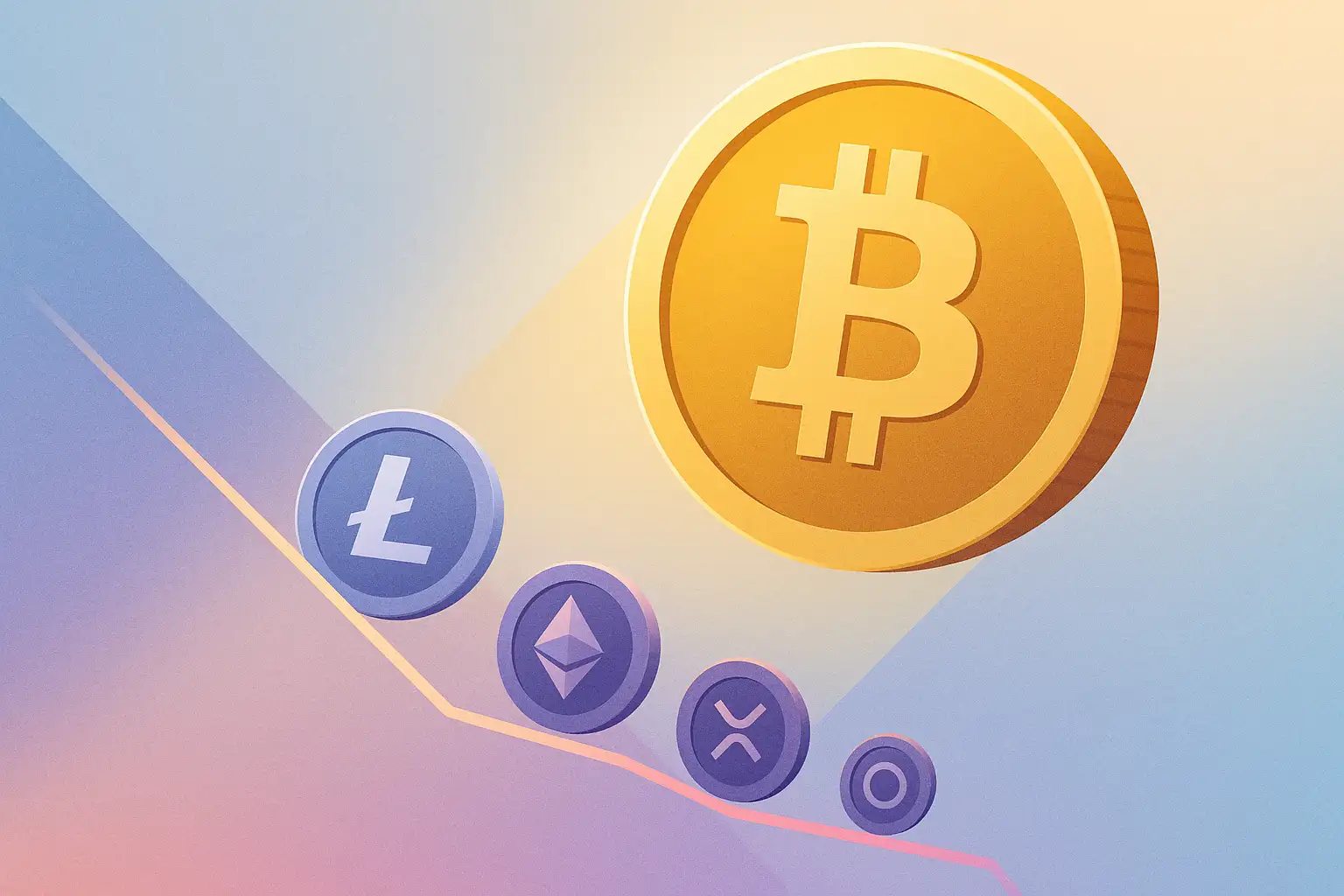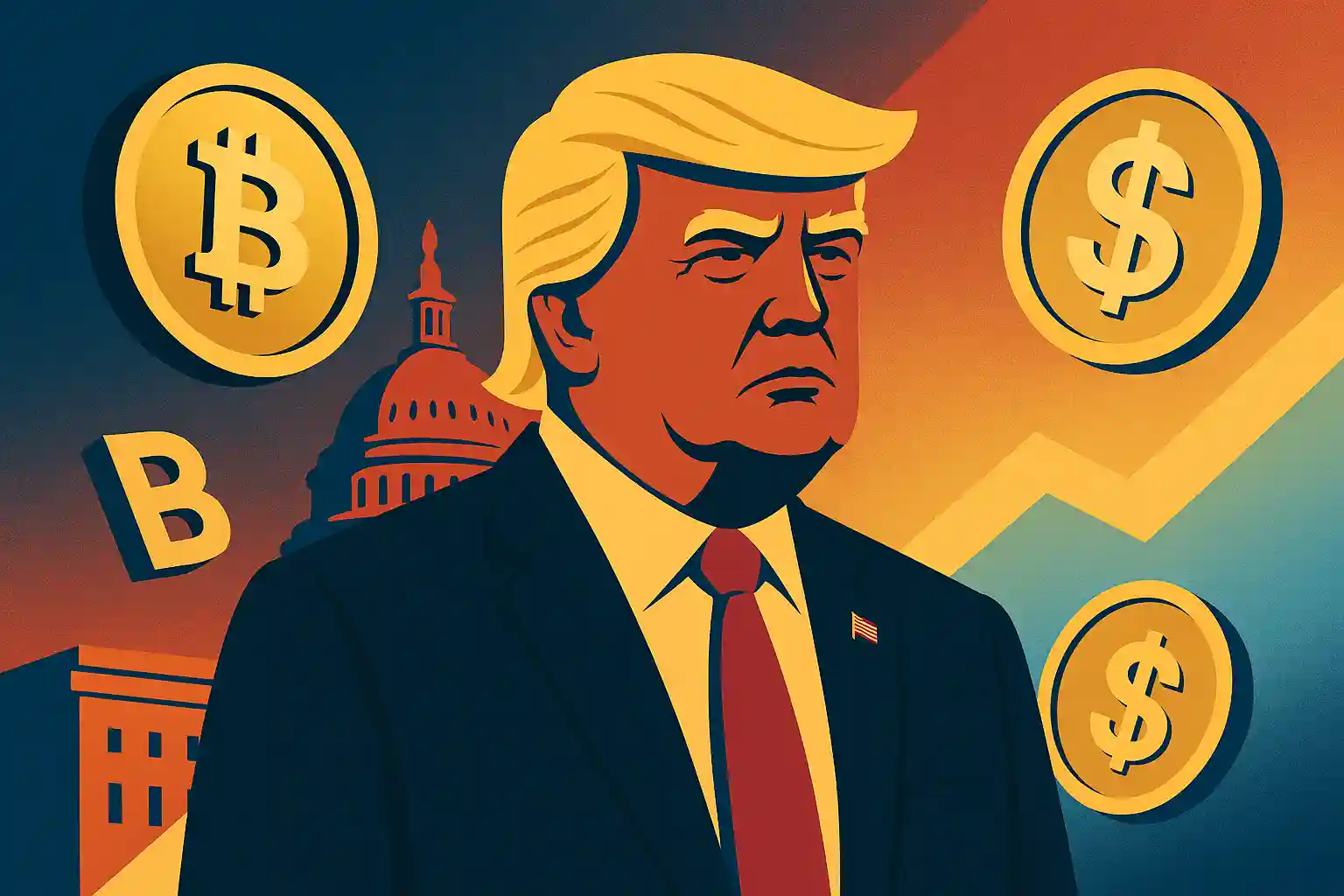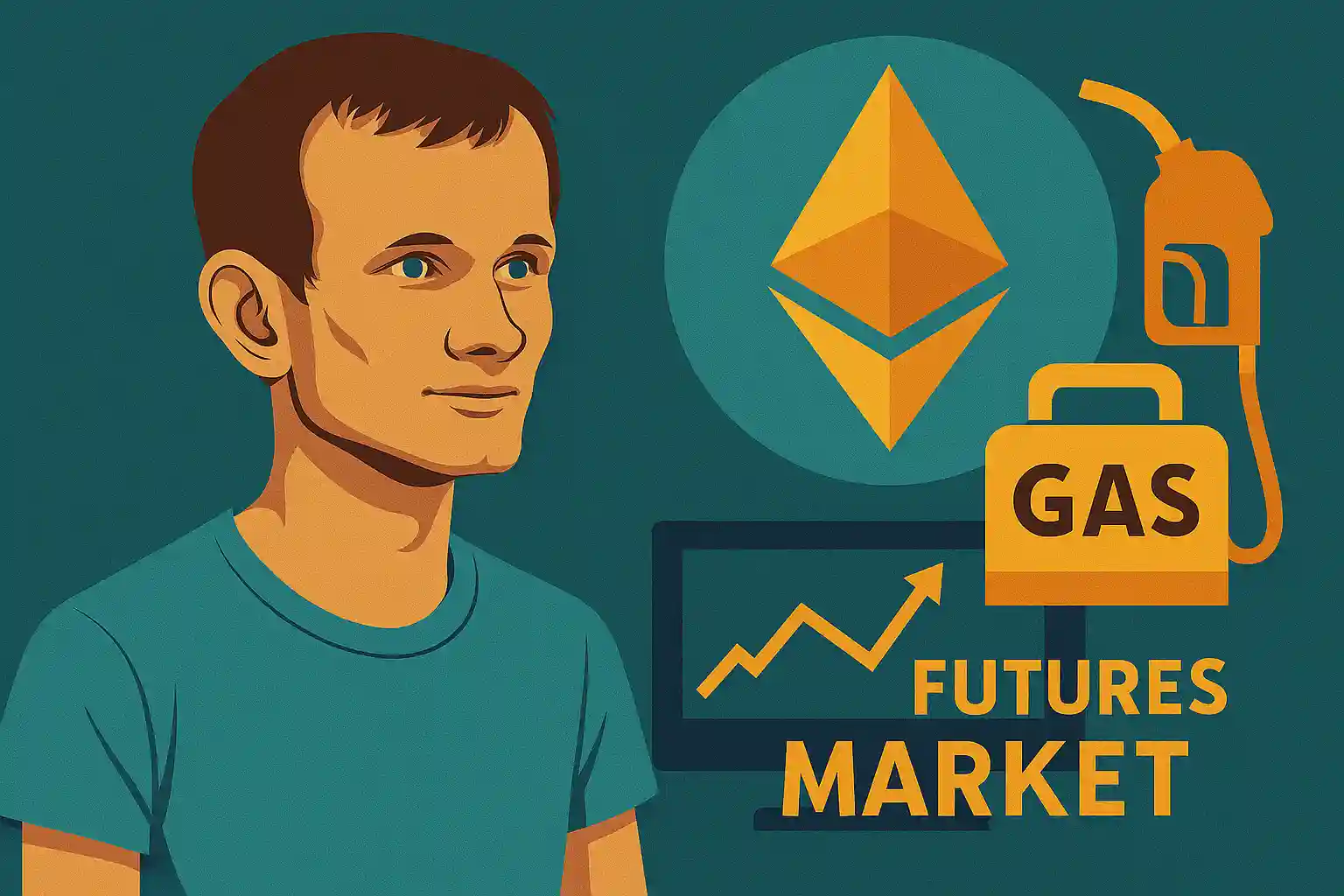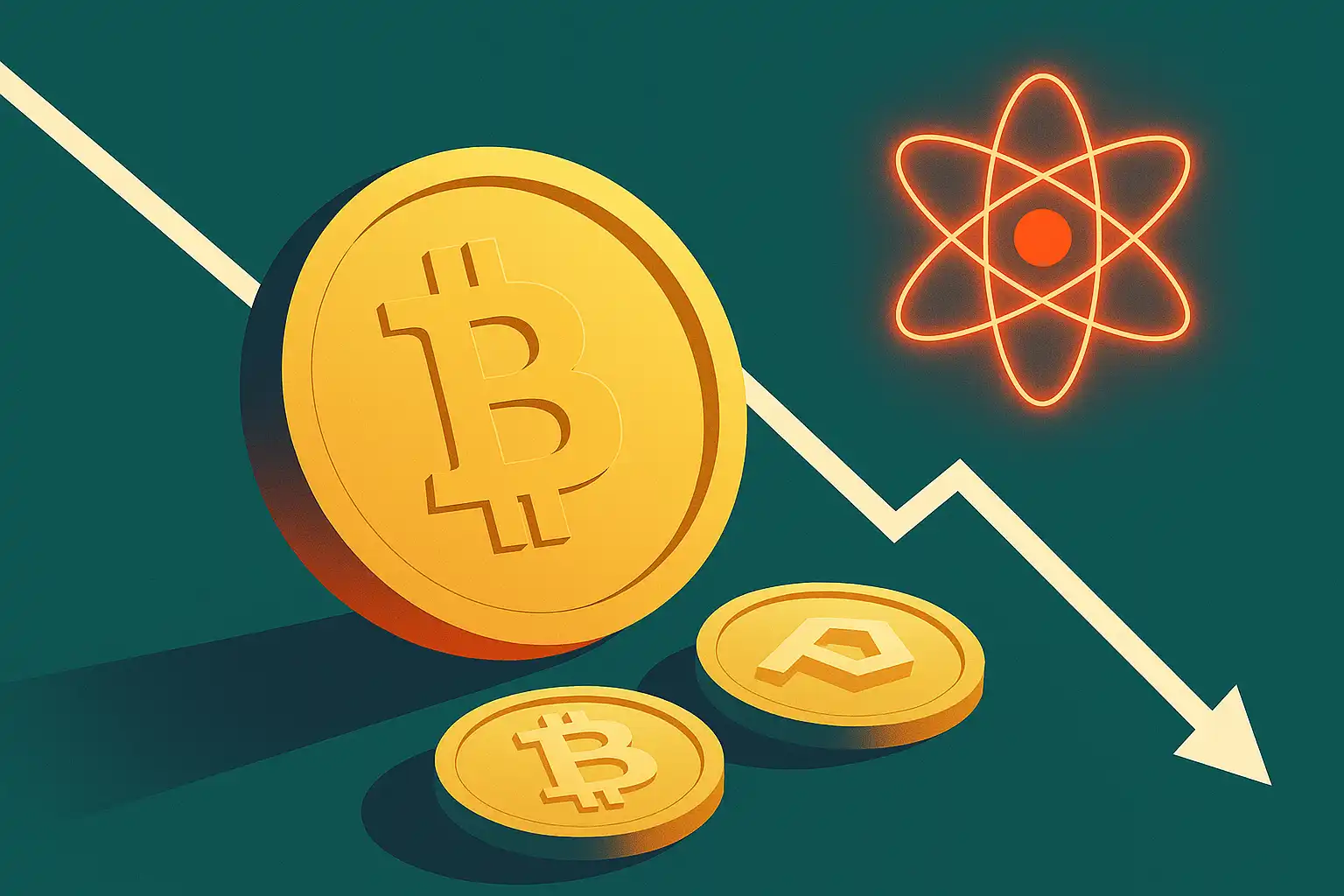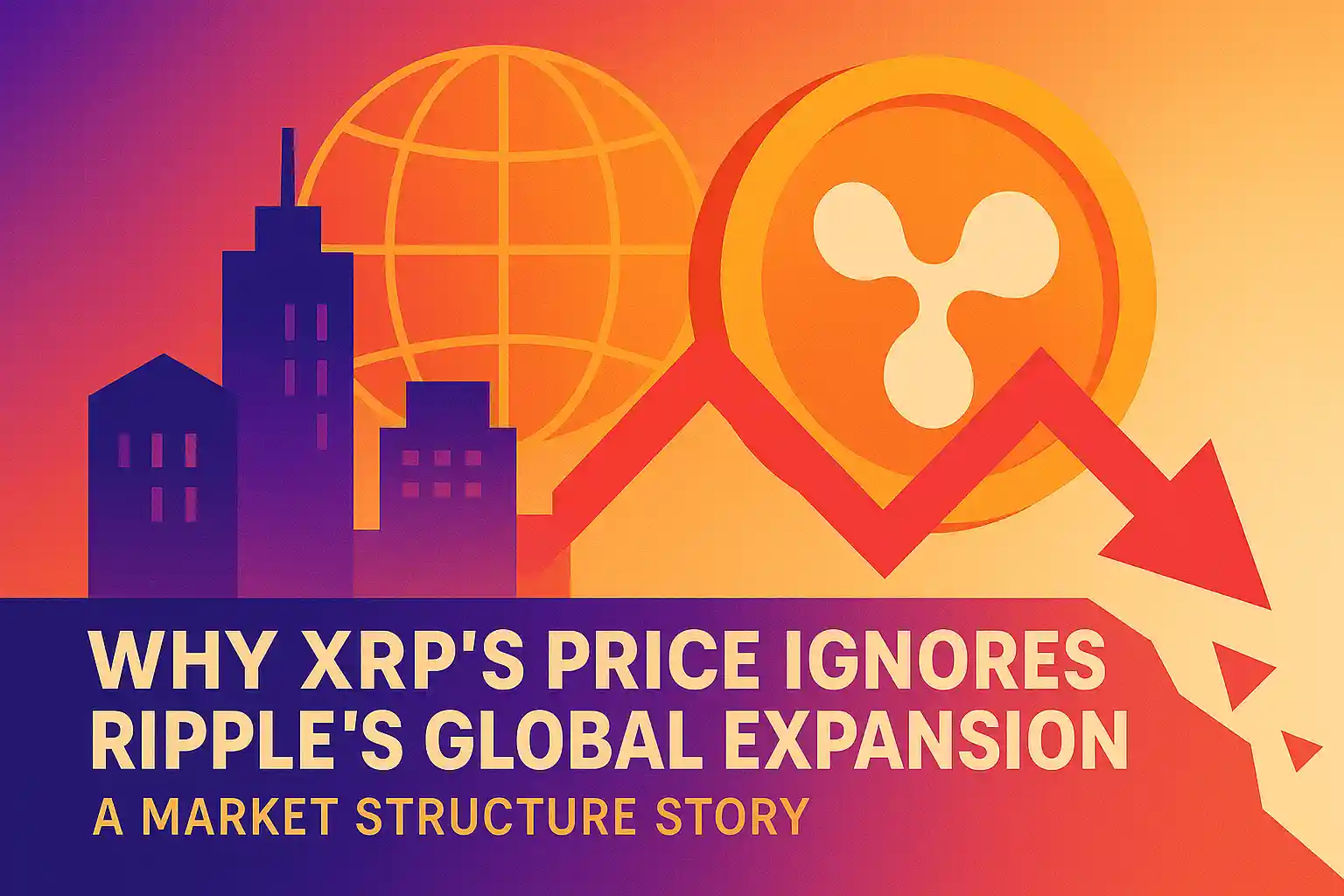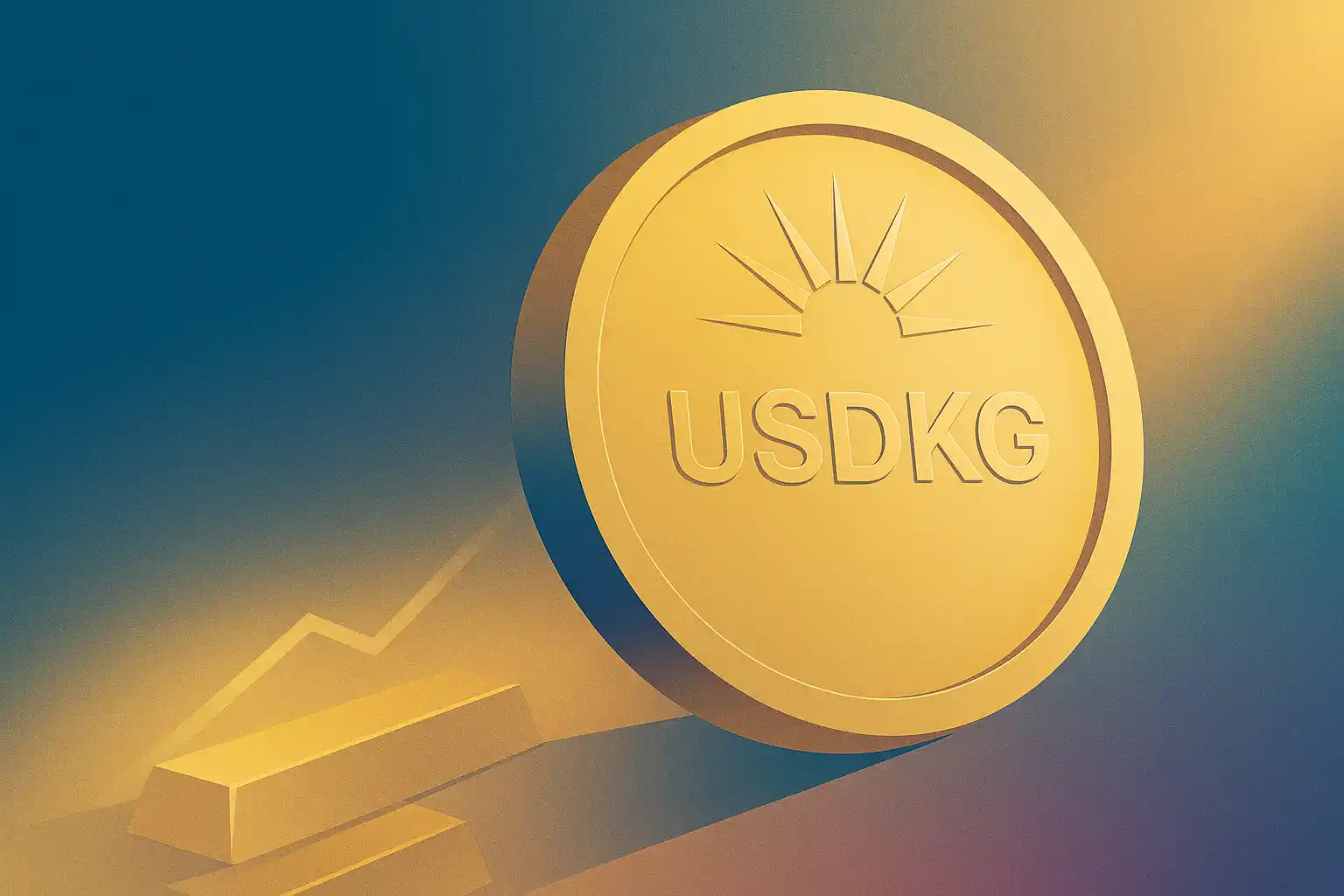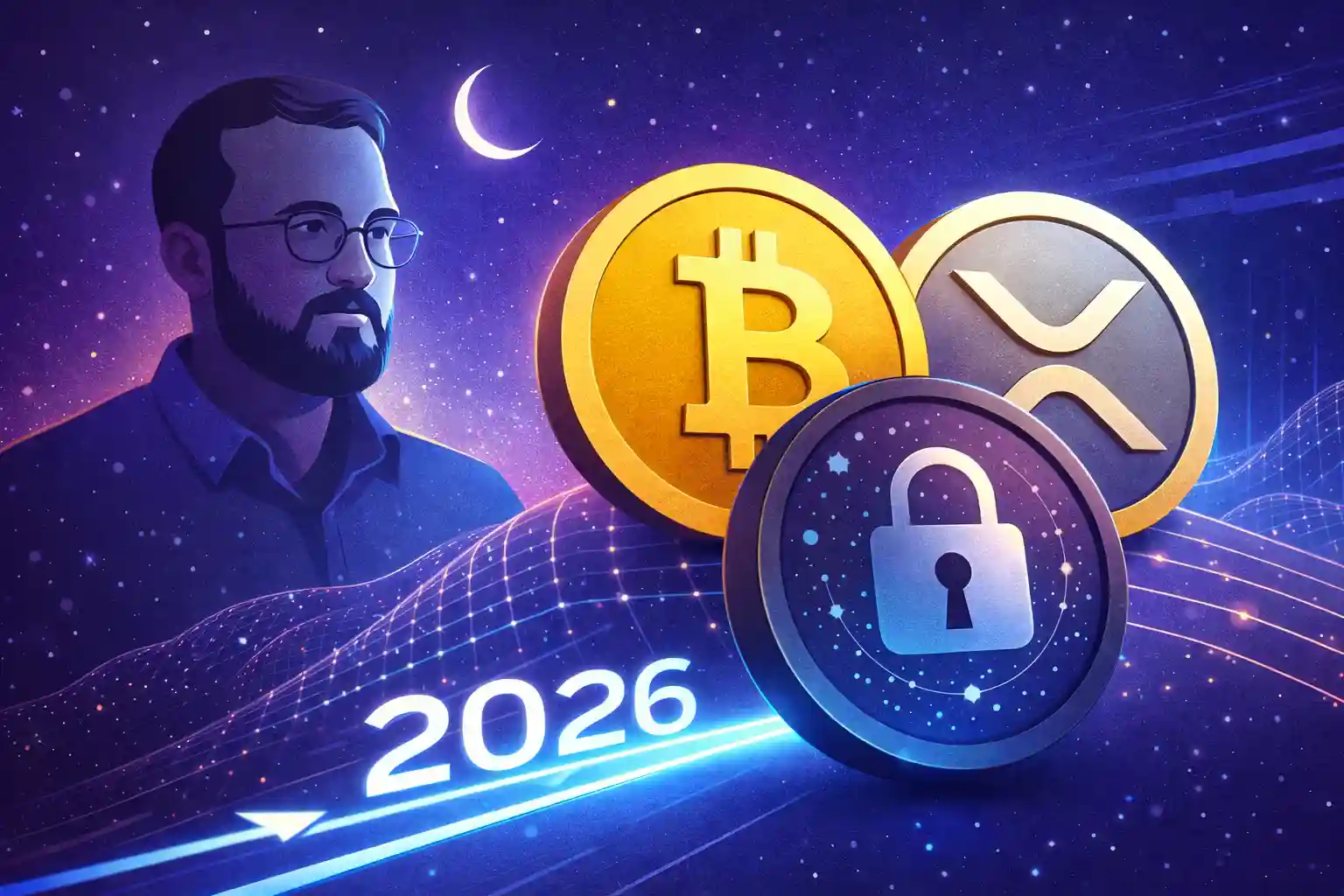Solana and HBAR ETFs Launch Tomorrow as Bitwise and Canary Capital Confirm Trading Start
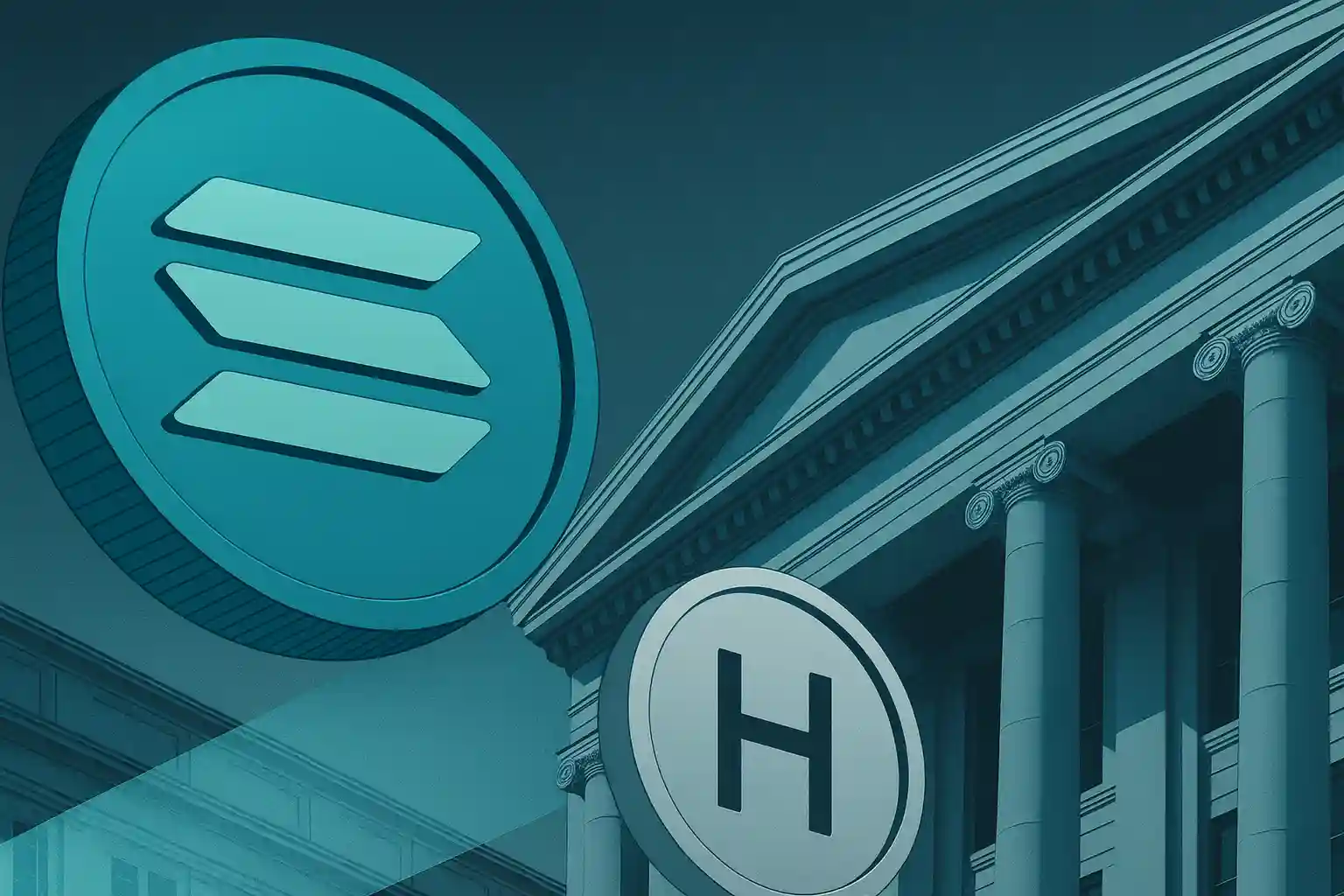
In Brief
Solana and HBAR ETFs from Bitwise and Canary Capital confirmed to begin trading tomorrow after weeks of regulatory ambiguity and false starts.
NYSE Arca certification and dual issuer announcements resolve confusion that plagued altcoin ETF launch timeline throughout October.
SOL and HBAR prices remain flat despite launch confirmation, with traders awaiting proof of institutional demand and regulatory stability.
US government shutdown disrupting altcoin ETF approval process for weeks contributes to muted market reaction and elevated uncertainty.
Launch represents expansion of crypto ETF market beyond Bitcoin and Ethereum into altcoin territory, testing appetite for diversified institutional products.
Solana and HBAR ETFs will commence trading tomorrow following confirmation from both Bitwise and Canary Capital, ending weeks of regulatory confusion that left markets uncertain about altcoin exchange-traded product timelines. The dual announcements resolve ambiguity that characterized recent attempts to launch ETFs beyond Bitcoin and Ethereum, potentially opening pathways for broader institutional access to alternative crypto assets.
Despite the ostensibly bullish development, both SOL and HBAR token prices remain largely unchanged, reflecting market skepticism about whether anticipated institutional flows will materialize amid ongoing regulatory disruption and macroeconomic uncertainty.
Confirmation Arrives After Extended Uncertainty Period
The path toward Solana and HBAR ETF launches has been marked by false starts and regulatory ambiguity that left market participants uncertain about actual timing. While analysts anticipated a wave of altcoin ETF products following successful Bitcoin and Ethereum launches, confusion about regulatory approvals and launch schedules created hesitation among investors.
Bitwise provided definitive confirmation today that its Solana-based ETF product is prepared to commence trading tomorrow, removing one layer of uncertainty that had surrounded the launch. The announcement comes after previous timeline estimates proved premature, creating credibility questions about whether launches would actually occur.
Canary Capital separately announced that both its Solana and HBAR ETF products received certification from NYSE Arca and would begin trading imminently. Leading ETF analysts interpreted the NYSE Arca certification as the final regulatory hurdle, though some residual doubt persisted given recent false starts.
The convergence of announcements from two separate issuers—Bitwise for Solana and Canary Capital for both Solana and HBAR—substantially increases confidence that trading will actually commence as stated. When multiple entities independently confirm similar timelines, it typically indicates genuine regulatory clearance rather than premature announcements based on anticipated approvals.
The confirmation resolves a period where market participants remained uncertain whether altcoin ETFs would launch in 2025 at all, much less on specific dates. This ambiguity stemmed partly from the novel nature of altcoin ETF products and partly from broader regulatory disruption affecting the approval process.
🚨JUST IN: @BitwiseInvest just filed its $SOL spot ETF registration statement, which will be visible on the @SECGov website tomorrow morning, I’m told.
The @NYSE approved the 8‑A filing this morning, making the ETF effective and ready to launch tomorrow morning at market open. https://t.co/HYq4w4Ru9i
— Eleanor Terrett (@EleanorTerrett) October 27, 2025
Muted Price Action Reveals Market Skepticism
The disconnect between ETF launch confirmation and token price movement provides revealing insight into current market psychology. Traditional financial theory suggests that institutional product launches expanding access and liquidity should drive underlying asset prices higher through increased demand. Yet both Solana and HBAR have failed to rally on the news.
Solana’s price actually declined on the day Bitwise and Canary Capital confirmed ETF launches—the opposite reaction from what many analysts predicted. This muted or negative response suggests several factors are dampening enthusiasm that might otherwise drive speculative buying ahead of institutional flows.
First, traders appear reluctant to position ahead of launches until actual trading commences and institutional demand materializes. The history of false starts and delayed timelines has created skepticism about whether confirmed launches will actually occur, making market participants unwilling to commit capital based solely on announcements.
Second, Solana’s price has struggled recently independent of ETF developments, declining through periods when institutional product launches should theoretically provide support. This weakness suggests broader factors—potentially technical resistance, profit-taking after previous rallies, or concerns about network fundamentals—are outweighing ETF optimism.
Third, the lack of immediate price impact may reflect that sophisticated participants have already positioned for launches through gradual accumulation rather than reactive buying on announcement. If institutional players and informed traders built positions during the weeks of uncertainty, the confirmation itself wouldn’t trigger additional buying.
The price action indicates markets are adopting a “show me” attitude where actual institutional flows and sustained demand will need to materialize before conviction builds that ETF launches represent genuine positive catalysts rather than merely theoretical ones.
Government Shutdown Creates Regulatory Uncertainty
The ongoing US federal government shutdown has contributed significantly to the confusion and uncertainty surrounding altcoin ETF approvals and launches. Regulatory agencies including the SEC face operational disruptions that have slowed approval processes and created ambiguity about timelines for new financial products.
The shutdown—now extending several weeks—has particularly impacted newer product categories like altcoin ETFs where regulatory precedent remains limited. While Bitcoin and Ethereum ETFs navigated approval processes before the shutdown commenced, Solana and HBAR products entered the queue during the disruption period, creating complications around review timelines and approval certainty.
This regulatory chaos inflates market uncertainty beyond what altcoin ETF launches would normally generate. Investors must weigh not only whether institutional demand will materialize for these products but also whether regulatory instability might delay launches further, create compliance complications, or signal broader challenges for crypto market development.
The lack of clear resolution timeline for the government shutdown means this uncertainty factor will persist even after tomorrow’s launches. Questions remain about whether future altcoin ETF products will face similar delays, whether existing approvals might be reconsidered, and how ongoing regulatory disruption affects institutional appetite for crypto exposure.
Altcoin ETF Market Expansion Tests Institutional Appetite
The Solana and HBAR ETF launches represent a critical test of whether institutional demand extends beyond Bitcoin and Ethereum into alternative crypto assets. Bitcoin and Ethereum ETFs achieved substantial inflows based on these assets’ established market positions, liquidity depth, and widespread recognition among traditional finance participants.
Altcoin ETFs face more uncertain reception. Institutional investors accustomed to Bitcoin’s digital gold narrative and Ethereum’s smart contract platform positioning must now evaluate whether assets like Solana—focused on high-throughput transaction processing—or HBAR—built around Hedera’s hashgraph consensus—merit portfolio allocation.
The success or failure of these initial altcoin ETF products will significantly influence whether issuers pursue additional altcoin ETFs covering the broader crypto market. Strong institutional demand would validate expansion into alternative assets and likely trigger applications for products covering other top-tier tokens. Weak demand would suggest institutional appetite remains confined to the most established crypto assets.
Several factors will determine altcoin ETF reception. Fee structures must remain competitive with Bitcoin and Ethereum products to attract cost-conscious institutional allocators. Liquidity in underlying assets must support efficient ETF creation and redemption without excessive slippage. Educational efforts must help institutional investors understand value propositions for assets lacking Bitcoin and Ethereum’s name recognition.
Additionally, regulatory features like staking—which some crypto ETF products have incorporated—could differentiate altcoin offerings and provide yield enhancement that attracts investors seeking income generation beyond price appreciation.
What Tomorrow’s Launch Will Actually Reveal
The commencement of Solana and HBAR ETF trading tomorrow will provide the first concrete data about institutional demand for altcoin exposure through traditional investment vehicles. Several metrics will indicate whether these products gain traction or struggle:
- First-day trading volume will signal initial interest levels from both institutional and retail participants accessing these products through brokerage accounts. High volume suggests strong demand, while minimal activity would indicate limited appetite.
- Net inflows during the first week will reveal whether new capital is entering the crypto market through these products or whether trading volume represents primarily existing crypto holders accessing tokens through tax-advantaged accounts.
- Price impact on underlying assets will demonstrate whether ETF demand creates meaningful buying pressure for SOL and HBAR tokens or whether arbitrage mechanisms efficiently absorb flows without moving spot markets.
- Comparison to Bitcoin and Ethereum ETF launches will provide context about whether altcoin products generate proportional interest relative to market capitalizations or whether they underperform expectations based on larger tokens’ reception.
The muted pre-launch price action suggests markets are waiting for this concrete data before forming conviction about whether altcoin ETFs represent genuine positive catalysts or merely interesting but low-impact developments in the evolving crypto investment landscape.
Broader Implications for Crypto Market Development
Beyond immediate impacts on Solana and HBAR, these ETF launches carry implications for crypto market maturation and institutional adoption trajectories. Successful altcoin ETF products would demonstrate that institutional demand extends beyond the two dominant cryptocurrencies, validating the broader crypto market as an asset class worthy of diversified exposure.
This validation would likely accelerate development of additional investment products covering different crypto segments—DeFi-focused ETFs, layer-2 scaling solution products, privacy coin offerings—expanding institutional access points into crypto markets. Increased product diversity would in turn attract institutional capital that requires multiple options for portfolio construction.
Conversely, if altcoin ETFs struggle to attract meaningful institutional flows, it would suggest institutional crypto adoption remains confined to Bitcoin and Ethereum for the foreseeable future. This outcome would concentrate institutional capital among the largest tokens while leaving alternative assets dependent primarily on crypto-native demand.
The regulatory precedent these launches establish also matters significantly. Successful navigation of approval processes for Solana and HBAR ETFs—despite government shutdown complications—would indicate regulatory pathways exist for additional altcoin products. Ongoing regulatory challenges or post-launch compliance issues would signal that altcoin ETF approvals remain uncertain and potentially case-specific.
Market Psychology Reflects Cautious Optimism
The combination of confirmed launches and flat token prices reveals market psychology that blends optimism about institutional crypto adoption with caution about near-term catalysts. Participants recognize that ETF launches represent meaningful developments in crypto market infrastructure and legitimacy, yet remain skeptical about whether institutional flows will materialize at scales that move prices substantially.
This cautious stance reflects lessons learned from previous crypto developments where announcements generated more excitement than actual adoption. Markets have become more discerning about distinguishing between genuinely transformative developments and incremental progress that receives outsized attention.
The “wait and see” approach evident in current price action suggests traders have matured beyond reflexively buying crypto assets on positive news, instead requiring proof of actual demand and sustained impact before committing capital. This evolution toward evidence-based positioning represents market maturation even if it results in less dramatic price reactions to announcements.
Tomorrow’s launch will provide the evidence markets are waiting for—either confirming that institutional appetite for altcoin exposure exists at meaningful scale or revealing that demand remains concentrated in Bitcoin and Ethereum. Until that evidence arrives, the muted price action likely persists as participants maintain skeptical positioning despite ostensibly bullish developments.
The next 24-48 hours will determine whether Solana and HBAR ETF launches mark the beginning of broader altcoin institutional adoption or simply represent niche products serving limited demand within the evolving crypto investment landscape.
Missed buying crypto at the market bottom?
No worries, there's a chance to win in crypto casinos! Practice for free and win cryptocurrency in recommended casinos! Our website wheretospin.com offers not only the best casino reviews but also the opportunity to win big amounts in exciting games.
Join now and start your journey to financial freedom with WhereToSpin!
Middle East
wheretospininkuwait.com provides a comprehensive selection of trusted online casino reviews for the Middle East أفضل كازينو على الإنترنت. The platform features well-established casinos supporting crypto deposits in the region, including Dream Bet, Haz Casino, Emirbet, YYY Casino, and Casinia.
South Africa and New Zealand
In the South African online casino market, wheretospin.co.za highlights top-rated platforms and online casinos such as True Fortune Casino and DuckyLuck. Meanwhile, for New Zealand players, wheretospin.nz showcases highly recommended casinos, including Casinia, Rooster.bet, and Joo Casino.
